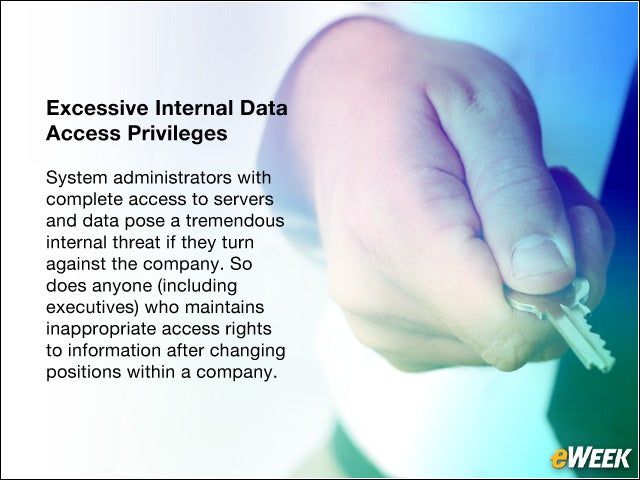eWEEK content and product recommendations are editorially independent. We may make money when you click on links to our partners. Learn More.
1A Case That Was Supposed to Legally Define APIs
At the copyright and patent trial in federal court in San Francisco, which began April 16, Oracle charged Google with stealing 37 key parts of its Java software suite to help build its highly successful Android mobile device operating system. Oracle is seeking about $1 billion in damages and a possible injunction against Google using the software. The case may be a landmark in deciding if application programming interfaces (APIs) are copyrightable.
2Lead Voice for the Plaintiff
3Oracle CEO and Founder Larry Ellison
Ellison testified April 17 that “Google is the only company I know that hasn’t taken a license for Java … I met with [former Google CEO, now Executive Chairman] Eric Schmidt in 2010 to discuss a joint project in which Google would use Oracle’s version of Java in its Android software for smartphones rather than their own version of Java.” But the companies never set down an agreement, Ellison said.
4Andy Rubin, Android Team Director
Andy Rubin, who runs Google’s Android development team, took the witness stand April 23 and acknowledged that in 2005 Google originally wanted to form a partnership with Sun Microsystems that would have given it the green light to use all parts of the Java platform for its upcoming mobile device operating system. “We were in discussion with Sun for quite some time,” Rubin said. “Partnership was my main objective.” Later, Rubin wrote in an email to Google executives that “We’ll have to pay Sun for the license.”
5Dan Bornstein, Java and Android Developer
Former Google software architect Dan Bornstein, who helped create Android, testified April 25 that he took some components of the Sun-developed Java code out of the configuration shortly after Oracle filed its lawsuit in 2010—only months after acquiring Sun in January of that year. This was a curious development, making Google appear to be on the defensive. When asked why he did this, Bornstein responded that Android, like most ongoing software projects, is “a living project” that constantly is being updated and improved. It’s hard to argue with that statement.
6Google Executive Chairman and Former CEO Eric Schmidt
Schmidt took a turn on the witness stand April 24, defending his company’s decision to go its own way in using Java to help build its now hugely popular Android mobile device operating system. Schmidt told the court that Google copied only the names of the APIs, not the APIs themselves. “An interface is a specification. A name,” Schmidt said. “We used the interface names, which is how one does this and then did our own implementation of those services.”
7Former Sun CEO Scott McNealy
The Sun co-founder, who considers Oracle CEO Larry Ellison one of his best friends, took Oracle’s side in its dispute with Google, testifying that just because Java is open source and publicly available doesn’t mean the Internet connectivity language’s APIs don’t have to be licensed in certain contexts. “Open source or open standards doesn’t mean ‘Let’s throw it over the transom,'” McNealy told the court. “That’s a big difference.”
8Former Sun CEO Jonathan Schwartz
During his testimony, Schwartz contradicted McNealy, saying that companies could use Java without buying a license so long as they didn’t claim to be Java-compatible and use the Java logo. Users of Java must subscribe to the open standards Java requires. During his testimony Schwartz was asked “Was there ever a time during your tenure at Sun where Java APIs were considered proprietary or protected?” His answer: “No. To the extent that anybody made that claim, we would have worked hard to say, ‘No, that’s not true.’ We didn’t think they [Google] were doing anything wrong.”
9Presiding Judge William Alsup
10Oracle and Sun, Two Years Ago
CEOs McNealy (left) and Ellison, longtime personal friends, joined forces in January 2010, when Oracle bought the slumping Sun for $7.4 billion, including the Java language technology, which made Oracle the standard bearer for the technology and the Java development community.









